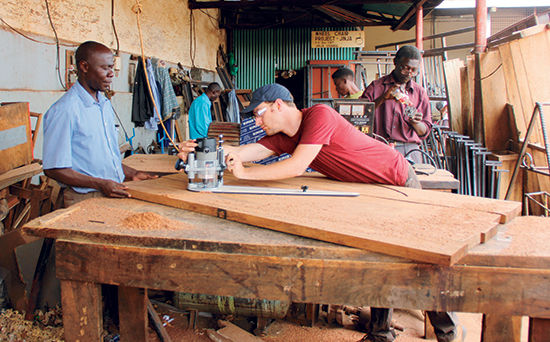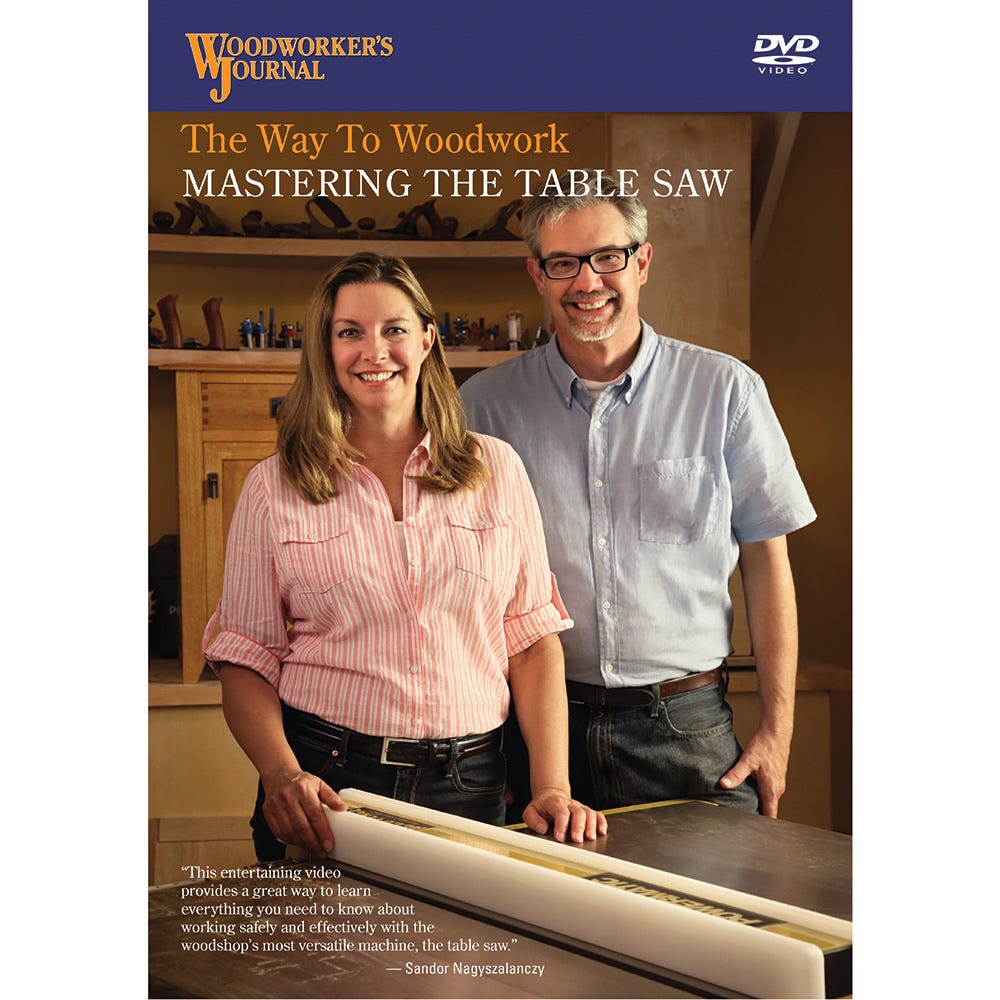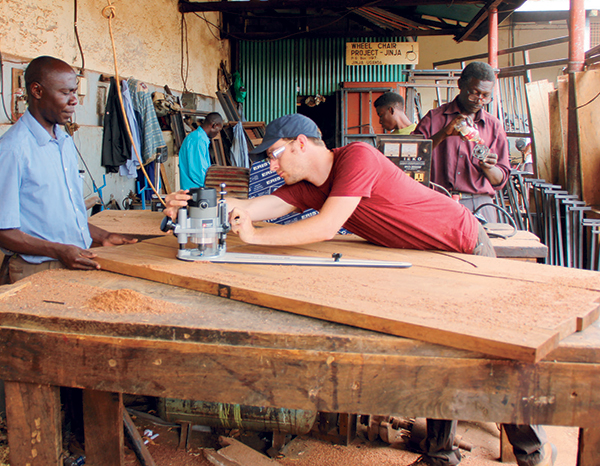
Architecture Student’s Business Supports Carpenters, Schools
Impressed with what Ugandan carpenters have been able to accomplish, “often with just a hacksaw,” Brice Aarrestad has founded Help Desk Furniture Co. to promote the carpenters’ talents, while also supporting Ugandan schools and putting his own skills to use.
The company setup: furniture made in Uganda, from sustainably sourced African hardwoods, will be sold to customers in the U.S., with profits funding Ugandan schools.
Brice first traveled to Uganda in 2009, on a two- week volunteer trip with Engineering Ministries International, acting as a designer and construction manager. He participated in another two-week trip in 2010; moved to Jinja, Uganda, for a 11⁄2- year stint in 2011; and spent another five weeks there this past summer.
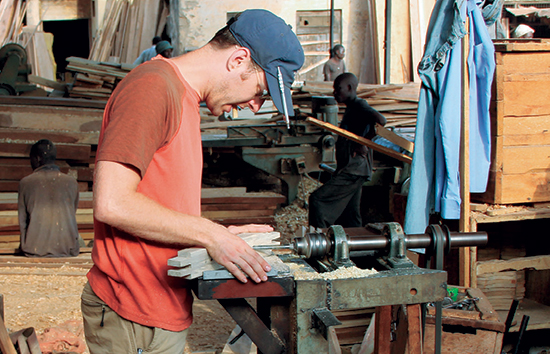
Last summer’s work included finding potential local workers with whom to partner, and building some prototypes. “There are workshops throughout the area, kind of like a warehouse, where carpenters will rent a corner of space. I went to those and asked around,” plus got recommendations from expatriates, Brice said.
Most Ugandan woodworkers do a lot of their work with hand tools, Brice said. “It might be old Stanley #5s they got from the Brits who colonized the area. Antique tools are in regular use.” The Ugandan carpenters do have power tools; again, “Some are relics from the imperial times of the Brits. They keep them working as best as they can,” Brice said.
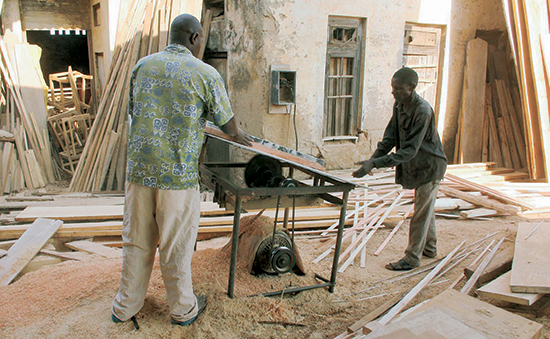
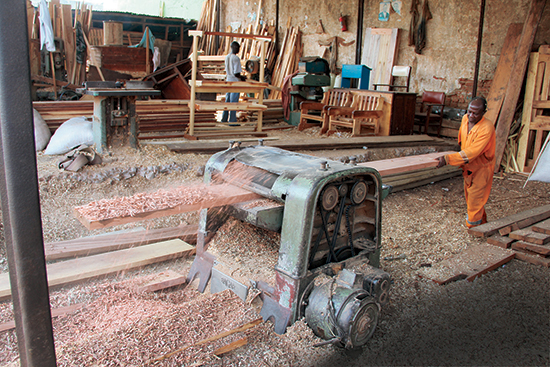
As he worked with the local carpenters last summer to make prototypes for Help Desk Furniture products, “The guys I was working with, it was the first time they’d seen a tapering jig. They wanted to know ‘Why don’t we just hand cut everything?’ After passing a couple of legs through, they realized pretty quickly the benefit of using jigs.”
Among those prototypes were tables built in a mid-century modern style. “I think it works well with their skills – it’s simple to build, but the key is in the details,” and fits his own personal design preferences, Brice said.
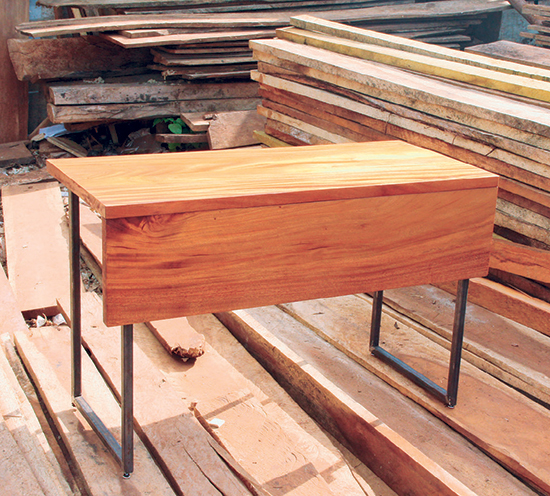
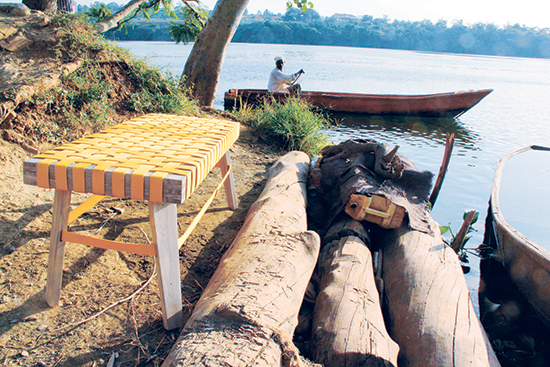
“Right now, the Ugandan style seems to be locked into a Victorian sensibility,” he added. “Every guy seems to be making the same design as the guy next to him.”
In part, that’s due to demand. “If the locals want a bedframe, they want to pay as little as possible,” Brice said. “The market isn’t there for quality work – but the desire is there,” on the part of the carpenters. “They realize we’re paying for quality, and they’re excited about that.”
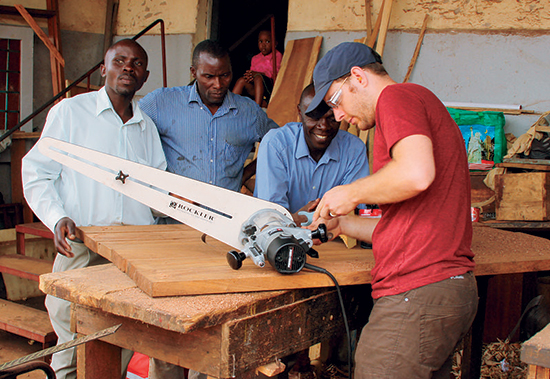
A portion of the profits from Help Desk Furniture Co. will also go to supporting Ugandan schools. “If you’ve got an existing school that needs maintenance, there’s not a lot of funding,” Brice said. “They might have 40 students in a class and enough desks for 10, and the desks that are there are probably 30 years old.”
The desks and many other Help Desk products will use the same types of woods the Ugandan carpenters are likely to use for local commissions. Mvule (Milicia excelsa) and mugavu (Albizia coriaria) are “both pretty dense woods. They’re a little more difficult to work with, but they’re gorgeous,” Brice said.
Sourcing them sustainably, however, is a challenge of working in Uganda. The one forestry officer in the Jinja region is understaffed and underfunded. At least at first, Help Desk Furniture will work with private landowners who have timber resources, plus the forestry officer, making every effort to document that the wood is being harvested in a legal manner.
When a production facility is set up in Uganda, Brice and his wife Meredith would likely move back to that country. For now, however, Brice is concentrating on finishing his master’s degree in architecture at the University of Minnesota (he should graduate in May). He’s also moving forward on the next steps for Help Desk Furniture Co.: “securing investors and funding; finding retailers to pick up the line; and finding advisers interested in helping me shape the future of this and bringing things to market,” Brice said.
For more information, visit www.helpdeskfurniture.com.
